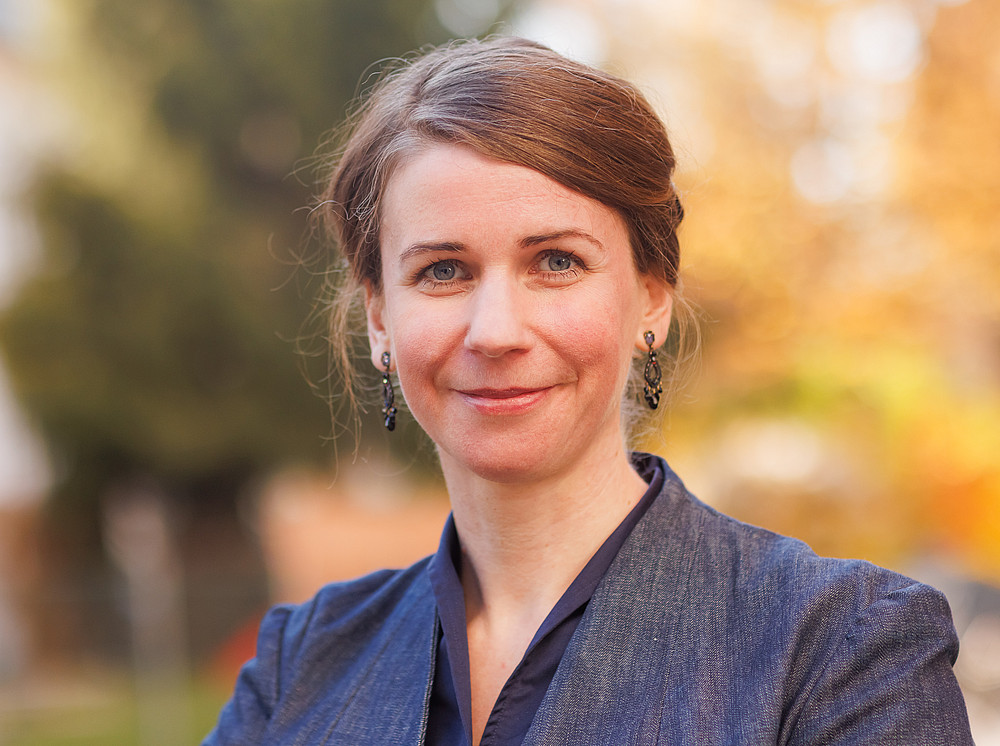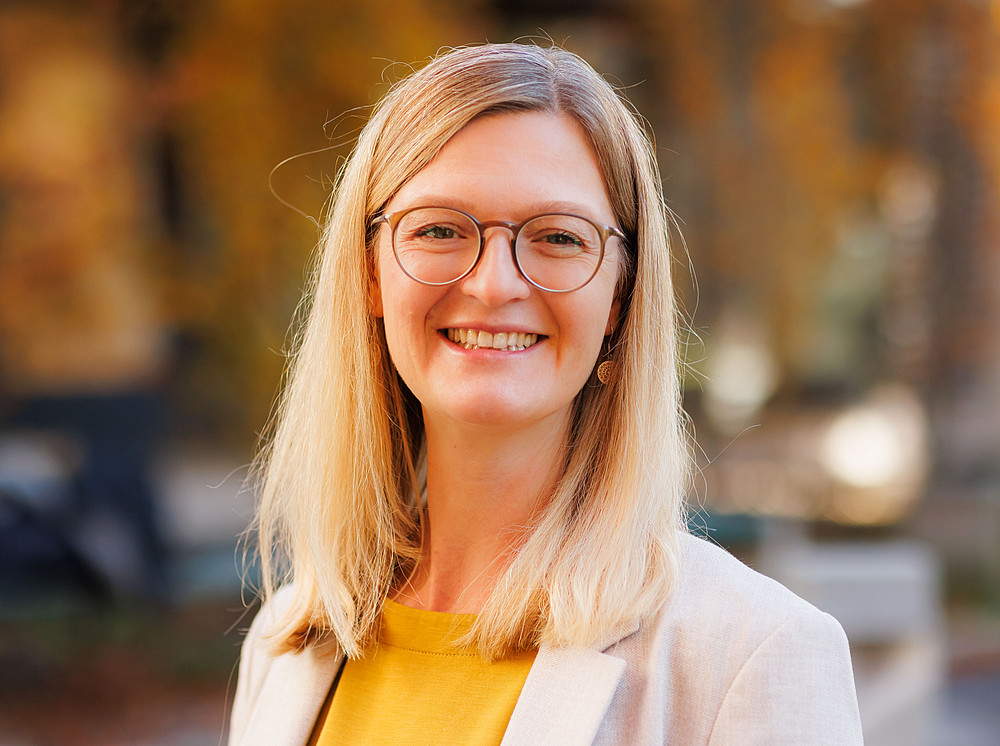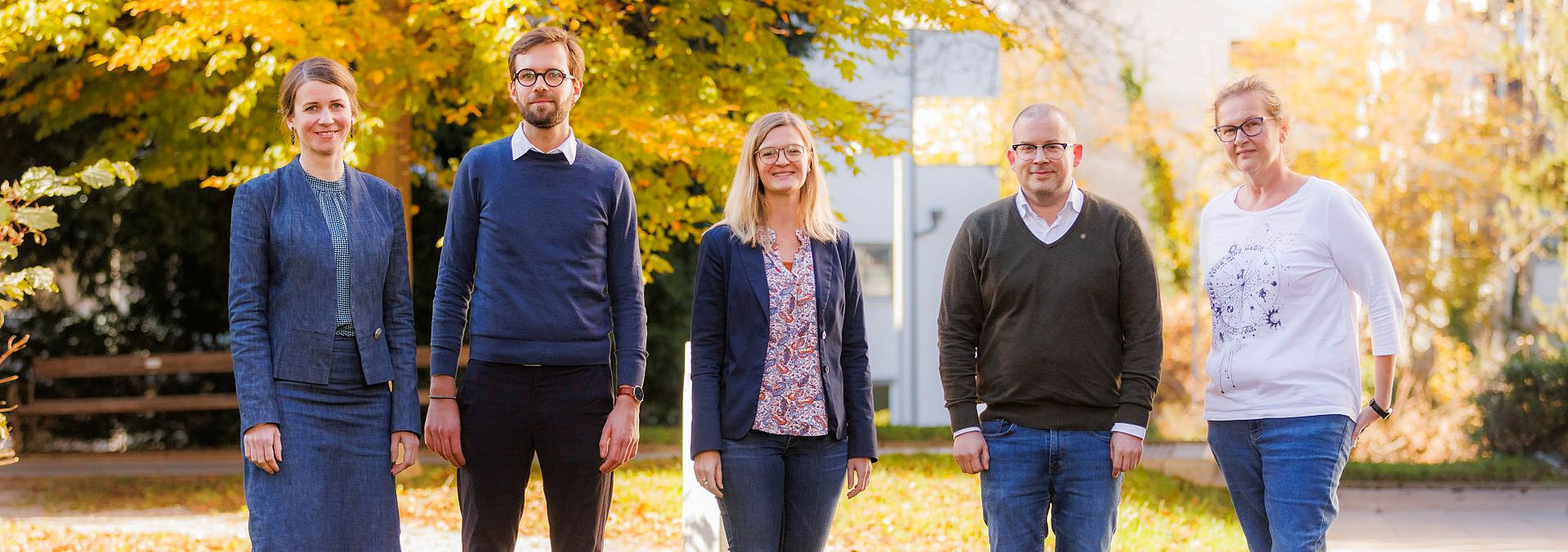Um den christlichen Glauben samt seiner ausdifferenzierten Glaubensinhalte zu durchdringen und dessen bleibende Relevanz in unserer Zeit zu plausibilisieren, sind Forschung und Lehre am Fachbereich Dogmatik intra- und interdisziplinär ausgerichtet.
Im intradisziplinären Gespräch mit anderen theologischen Fachbereichen werden Grundlagen, wesentliche Entwicklungen und Sinngehalte des Glaubensgutes ausgehend von der Bibel bis in unsere Zeit ergründet. Der interdisziplinäre und interreligiöse Dialog ist unverzichtbar, um die Inhalte des christlichen Glaubens zu „verheutigen“ und in den unterschiedlichen gegenwärtigen Kontexten unserer Zeit verständlich zu machen. Unter Wahrung der jeweiligen Grenzen der Disziplinen und unter Einbezug von Metareflexionen zur Interdisziplinarität werden im Rahmen der Forschungsarbeiten am Institut vorrangig Natur-, Kultur-, Kunstwissenschaft und Theologie zusammengeführt. So stößt die Dogmatik je von Neuem eine vertiefte und aktualisierte Glaubensreflexion an und ermöglicht es, deren bleibende Relevanz für Kirche und Gesellschaft aufzuzeigen.
Unsere Forschungsschwerpunkte
Schöpfungstheologie und Nachhaltigkeit
Die schöpfungstheologischen Forschungen am Fachbereich sind von einer intensiven Einbindung des Dialogs zwischen Naturwissenschaft und Theologie geprägt. Die ökologische Krise als „Zeichen der Zeit“ und der Aspekt der Nachhaltigkeit werden gewichtig in die theologischen Reflexionen einbezogen.
Ausgewählte Einblicke in den Forschungsschwerpunkt:
- Trawöger, Sibylle, Krone der Schöpfung = Nabel der Welt? Zu einer kopernikanischen Wende in der Schöpfungstheologie, in: Theologisch-Praktische Quartalschrift 171 (2023) 24-33.
- E.S. Guber, V. Stadelbauer, V. Pichler, K. Resch Fauster, A. Todorovic, T.C. Meisel, S. Trawöger, O. Holloczki, S. D. Turner, W. Wadsak, A. D. Vethaak, L. Kenner, To Waste or Not to Waste: Questioning Potential Health Risks of Micro‑ and Nanoplastics with a Focus on Their Ingestion and Potential Carcinogenicity, in: Exposure & Health 2022. (Open Access: https://link.springer.com/article/10.1007/s12403-022-00470-8)
Theologische Anthropologie in gegenwärtiger Zeit
Sowohl Inhalte als auch Praktiken des christlichen Glaubens sind gegenwärtig neu zu verantworten. Die Forschungen zur "Theologischen Anthropologie in gegenwärtiger Zeit" suchen nach theologischen Zugängen, um der Frage nach dem Menschsein angesichts der Beziehung zu Gott in unserer Zeit nachzugehen.
Ausgewählte Einblicke in den Forschungsschwerpunkt:
- König, Anna Maria, Heiliger Schmerz. Philosophische Erkundungen einer fragwürdigen Verbindung., in: Argárate, Pablo / Hopfgartner, Willibald (Hg.): Zwischen Gott und Welt: das Heilige, Innbruck: Tyrolia 2023, 119-140.
- Vicentini, Mattia, Il quotidiano rappresentato: le feste religiose come luogo del riconoscimento della comunità credente nella sfera pubblica, in: Ernesti, Jörg / Lintner, Martin M. / Moling, Markus (Hg.), Den Alltag unterbrechen: Religiöse Feste in einer säkularen Gesellschaft, Innsbruck 2022, 205-216.
- Trawöger, Sibylle, Innehalten! Ein Impuls aus systematisch-theologischer Perspektive zum lebensförderlichen Umgang mit Herausforderungen innerhalb einer „Welt der Ökonomisierung“, in: Buchhammer, Brigitte (Hg.), Philosophie in einer Welt der Ökonomisierung: Theorie und Praxis, Wien 2020, 179-187.
Didaktik der Systematischen Theologie
Im Rahmen des Forschungsschwerpunkts Didaktik der Systematischen Theologie werden Inhalte und Zugänge der Systematischen Theologie unter (hochschul-)didaktischen Gesichtspunkten bearbeitet, vorrangig an den Phänomenen „Paradoxie“, „Korrelation“ und „Systematik“ ausgerichtet. Anhand der Bearbeitung dieser Metabegriffe werden die Verknüpfungen zwischen Dogmatik, Fundamentaltheologie und Religionsdidaktik sichtbar gemacht.
Ausgewählte Einblicke in den Forschungsschwerpunkt:
- Trawöger, Sibylle, Konstellation(en) der Korrelation. Skizze zur Erschließung des Korrelationsprinzips, in: Kreutzer, Ansgar, Loiero, Salvatore, Möhring-Hesse, Matthias, Odenthal, Andreas (Hg.), Pragmatik christlicher Heilshoffnung unter Bedingungen der Säkularität. Zugänge zu einer differenzsensiblen Pragmatik erfahrungsbezogenener Theologie, Basel 2021, 87-117.
- Trawöger, Sibylle, Wie kommt Systematik in systematisch-theologische Texte? Impulse aus Wissenschaftsforschung und Diagrammatik für die Didaktik der Systematischen Theologie, in: Hiepel, Ludger, Klöckener, Monnica (Hg.), Schreiben als theologiedidaktische Herausforderung, Berlin 2023, 131-147.
- Trawöger, Sibylle, Ambiguitätstoleranz im Paradox. Komplementarität und Paradoxie in der Didaktik der systematischen Theologie, in: Deibl, Marlene, Mairinger, Katharina (Hg.), Eindeutig mehrdeutig. Ambiguitäten im Spannungsfeld von Gesellschaft, Wissenschaft und Religion (Religion and Transformation in Contemporary European Society, Bd. 20) Göttingen 2022, 179-193.
Dogmatik und Spiritualität
Eine aus wissenschaftstheoretischer und inhaltlicher Sicht notwendige Differenzierung zwischen Spiritualität und Dogmatik darf nicht in einer Trennung münden. Im Rahmen dieses Forschungsschwerpunktes erfolgt eine Vermittlung zwischen Spiritualität und Dogmatik.
Ausgewählte Einblicke in den Forschungsschwerpunkt:
- Trawöger, Sibylle, Aisthesis–Perception–Anaesthetics: Inspirations from Wolfgang Welsch’s Aesthetics for a Perception-Sensitive Theology, in: Religions 14 (2023) 871
- Internationale Konferenz: Breaking Boundaries in Theology. In Conversation with Roger Haight SJ
Systematische Theologie im Dialog mit Natur-, Kultur- und Kunstwissenschaft
Der interdisziplinäre Dialog mit Natur-, Kultur- und Kunstwissenschaft prägt die systematisch-theologische Arbeit an unserem Fachbereich. Unter Wahrung der jeweiligen Grenzen der Disziplinen und unter Einbezug von Metareflexionen zur Interdisziplinarität erfolgt die Annäherung an den christlichen Glauben samt seiner Inhalte sowie deren Plausibilisierung in unserer Zeit im Gespräch mit mehr als einer Disziplin.
Ausgewählter Einblick in diesen Forschungszugang:
- Trawöger, Sibylle, Impulse aus Bruno Latours Wissenschaftsforschung für den Dialog zwischen Naturwissenschaft und Theologie, in: Bogner, Daniel, Schüßler, Michael, Bauer, Christian (Hg.), Gott, Gaia und eine neue Gesellschaft? Theologie anders denken mit Bruno Latour, Bielefeld 2021, 195-218.
- Trawöger, Sibylle, Aisthesis–Perception–Anaesthetics: Inspirations from Wolfgang Welsch’s Aesthetics for a Perception-Sensitive Theology, in: Religions 14 (2023) 871.
Leiterin des Fachbereichs: Sibylle Trawöger
Die grundlegende Frage, die meine theologische Forschung und Lehre leitet, ist: Wie kann der christliche Glaube samt seinen ausdifferenzierten Glaubensinhalten zeitgemäß verantwortet und plausibilisiert werden?
Seit Herbst 2022 bin ich Professorin für Dogmatik am Institut für Systematische Theologie und Liturgiewissenschaft an der Katholischen-Theologischen Fakultät der Universität Graz.


Universitätsassistentin Mag. Anna Maria König
Anna M. König, geboren im geographischen Herzen Österreichs, Bad Aussee. Als Tochter einer Dirndlschneiderin ist ihr die Beschäftigung mit dem Leib gleichsam in die Wiege gelegt. Nicht zuletzt der missglückte Nadelstich lässt sie fasziniert sein von den Fragen, warum sich Schmerzen so unterschiedlich anfühlen, warum wir sie gewöhnlich meiden und sie dennoch wie unverzichtbare Fäden unser Selbst- und Fremderleben verbinden.
Dissertationsprojekt: Mein Schmerz und die Anderen. Phänomenologische Annäherungen an die Inter-/Subjektivität von Schmerzerfahrung.
Studentischer Mitarbeiter Martin Freitag


Emeritus Em. o. Univ.-Prof. Mag. Dr. Bernhard Körner
- * 1949 in Klagenfurt
- 1969 - 1975 Studium der Theologie und Anglistik an der Universität Graz
- nach der Priesterweihe (1976) in der Seelsorge tätig
- 1983 - 1991 Habilitationsstudium und Habilitation an der Universität Tübingen
- Lehraufträge und Vorträge zu Themen der Spiritualität
- seit 1993 ordentlicher Universitätsprofessor für Dogmatik an der Universität Graz
- Konsultor der Päpstlichen Kongregation für das Katholische Bildungswesen
- korrespondierendes Mitglied der Päpstlichen Theologischen Akademie
- Vorsitzender der Ökumene-Kommission der Diözese Graz-Seckau
- seit Dezember 2011 Mitglied des Domkapitels Graz
- seit 1. Oktober 2017 emeritiert
Derzeitige Forschungsschwerpunkte
- Theologische Erkenntnislehre
- Schriftinterpretation zwischen Dogmatik und historisch-kritischer Exegese
- Klaus Hemmerle und die trinitarische Ontologie
Ao. Univ.-Prof. i. R. Dr. theol. Otto König

Aktivitäten am Fachbereich
SE Schöpfungsspiritualität im SS 2024: Natur und Religion im Anthropozän
Das Seminar Schöpfungsspiritualität findet im Rahmen einer Lehrkooperation an der Universität Sant' Anselmo in Rom statt. Die Anmeldefrist ist bis 23. Februar 2024 verlängert.
Nähere Infos hier: Summer School
Online Conference: Breaking Boundaries in Theology. In Conversation with Roger Haight SJ (30.11.-02.12.2023)
Das Programm zum Download
Doktorand:innen-Vernetzungstreffen - 4. Juli 2023
Am 4. Juli konnte an der Fakultät ein Doktorand:innen-Vernetzungstreffen, mit 20 Teilnehmer:innen, erfolgreich stattfinden. Neben dem erklärten Hauptziel, die Doktorand:innen der Fakultät über die Fachbereiche hinaus zum Austausch und zur gegenseitigen Unterstützung anzuregen, standen am Vormittag ein Schreibworkshop und am Nachmittag die Präsentation dreier Dissertationsprojekte am Plan. Die Literaturwissenschaftlerin und Schreibdidaktikerin Prof.in Dr.in Cornelia Rémi (KU Eichstätt) hat mit Einblicken in ihren eigenen Promotionsprozess sowie mit zahlreichen praktischen Tipps die Lust am wissenschaftlichen Schreiben mit großem Engagement gefördert. Außerdem wurde das Schreibzentrum der Uni Graz durch seine aktuelle Koordinatorin, Verena Kumpusch BA MA, vorgestellt und das vielfältige Unterstützungsangebot des Zentrums präsentiert. Gestärkt durch ein gemeinsames Mittagessen - dankenswerterweise auf Einladung des Dekanats - gab es am Nachmittag die Möglichkeit, sich fachlich über ausgewählte Dissertationsprojekte auszutauschen. Mag.a Franziska Seiler (Kirchenrecht), Dipl. M.A. René Corvaia-Koch (Fundamentaltheologie) und Mag.a Anna M. König (Philosophie) stellten in diesem Rahmen ihre Arbeiten zur Diskussion.
Die Initiatorinnen der Veranstaltung, Prof.in DIin (FH) Dr.in Sibylle Trawöger und Mag.a Anna Maria König, blicken zufrieden auf die Veranstaltung zurück: „Einmal mehr wurde klar, dass die Doktorand:innen, der wissenschaftliche Nachwuchs und damit die gesamte Fakultät davon profitieren, wenn der Vernetzung und dem fächerübergreifenden Diskurs gebührend Raum und Zeit gegeben werden“, so König.
Kepler-Salon Linz - 7. Juni 2023
Sibylle Trawöger und Barbara Schrödl als Gastgeberinnen im Kepler Salon. Die Künstlerin Ruth Größwang blickt zusammen mit dem Theologen Tom Sojer auf drei ihrer Arbeiten zu Symbiosen.
Studierende zu Besuch im Kultum - Frühjahr 2023
Besuch der Ausstellung GEHEN & VERGEHEN von Wilhelm Scheruebl im Kultum.
Trinitarische Spuren in der Kunst - 17. Jänner 2023
Prof. DDr. Jakob Deibl (Wien) sprach am 17. Jänner 2023 im Rahmen der VO „Trinität und Geschichte“ über das Thema „Trinitarische Spuren in der Kunst“.
Von der Schriftlichkeit der Schrift und der Öffentlichkeit der Tradition - 13. Dezember 2022
Mit dem Thema "Von der Schriftlichkeit der Schrift und der Öffentlichkeit der Tradition" war Herr Dr. Andreas Telser am 13. Dezember 2022 zu Gast in der VU "Schrift, Tradition und Dogma".

Abschlussarbeiten im Fachbereich Dogmatik
Diplom- und Masterarbeiten
E. K., Die Allmacht Gottes angesichts des Leids (Arbeitstitel).
J. B., Suche nach einer heilsamen Kreuzestheologie (Arbeitstitel).
Bachelorarbeiten
N. S., Zwischen Tod und Auferstehung: Annäherung an die zeitgenössischen Debatten zum Zwischenzustand, 2023.